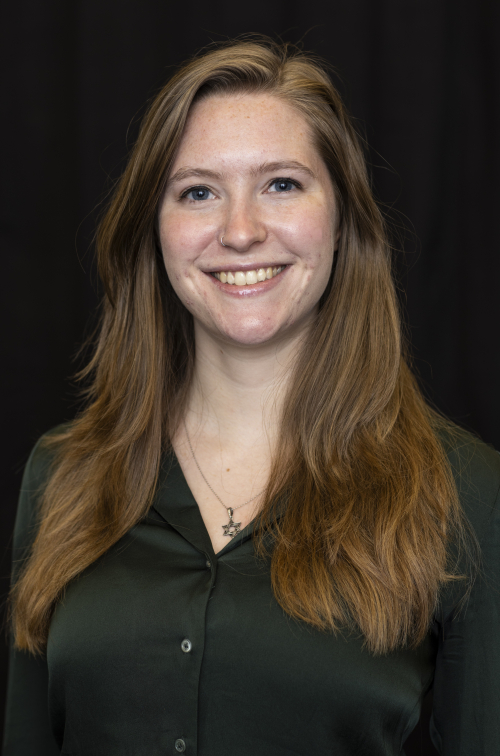Amy Sprague
June 9, 2025
A&A senior Senna Keesing has won a National Science Foundation Graduate Research Fellowship (NSF GRFP). Her award will support her doctoral studies at the University of Colorado Boulder starting this fall.

Senna Keesing, A&A senior
Breaking new ground for Mars landings
Keesing's award-winning proposal tackles the problem of landing spacecraft safely on Mars without direct human control.
"Landing on the Martian surface is no easy feat," Keesing wrote in her proposal. Current techniques have "only identified a small handful of sites with enough open space to attempt a landing."
Her research explores using model-based reinforcement learning to create smarter, more efficient landing guidance systems. This approach could potentially allow heavier spacecraft to land at more diverse sites across the Martian surface.
NSF workshop key to success
Keesing developed her winning proposal while participating in a workshop specifically designed to help students apply for the NSF fellowship. Led by A&A’s Assistant Professor Ed Habtour and his colleague Lauren Keuhne, the workshop gives students hands-on guidance through the complex application process.
"I'm truly thankful for the guidance and support I received during the workshop,” Keesing said. “It helped me to organize my technical ideas in a way that would make sense to reviewers from different backgrounds. Professor Habtour helped us understand how NSF evaluates proposals and what makes a compelling research plan, and the peer review sessions showed me how to make my writing clearer and more persuasive."
Started two years ago, Kuehne and Habtour's workshop has helped multiple UW students secure graduate fellowships, such as NSF GRFP. The program combines instructional sessions with intensive feedback on drafts and giving participants practical tools for successful applications.
Next steps at CU Boulder
At Colorado, Keesing will join the Celestial and Spaceflight Mechanics Lab led by Professor Dan Scheeres. Though her doctoral research may shift from her proposal focus, she plans to work in navigation and orbit determination.
"I'm excited to dive deeper into the mathematical and engineering challenges of spacecraft navigation," Keesing said. "The NSF fellowship gives me freedom to explore questions that might be too risky otherwise. Space travel has fascinated humans for more than a century—the opportunity to play even a small role in advancing the field feels incredibly meaningful."
Faculty praise
"Senna's work exemplifies the kind of forward-thinking research our aerospace program encourages," said Assistant Professor Karen Leung, Keesing’s faculty adviser in the CTRL Lab. "Her proposal identified real limitations in current Mars landing systems and offered an innovative approach blending techniques from control theory and machine learning. She thinks across traditional boundaries, which is exactly what solving tough aerospace problems requires. CU Boulder is gaining a remarkably talented researcher."
The highly competitive NSF Graduate Research Fellowship Program provides three years of financial support for graduate education, including a $37,000 annual stipend and $12,000 cost-of-education allowance to the institution.